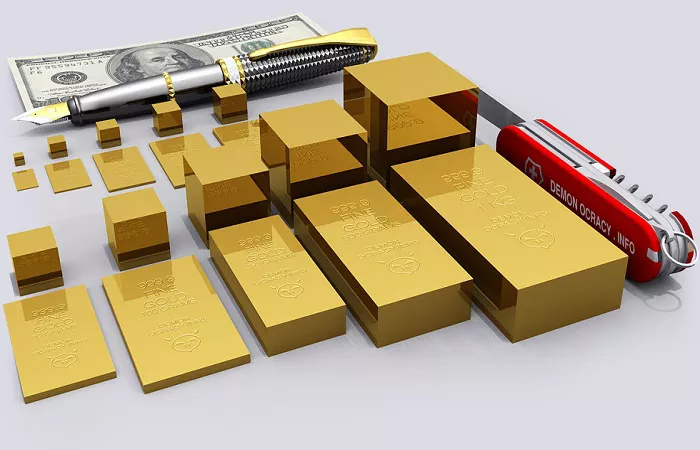Throughout history, the outbreak of war has often been accompanied by a notable increase in gold prices. This phenomenon has intrigued investors, economists, and the general public alike. There are multiple reasons behind the upward trend of gold prices during war, which can be analyzed from aspects like its role as a safe – haven asset, economic impacts of war, supply – demand changes, and psychological factors.This collective behavior of investors and central banks leads to a significant increase in the demand for gold, thereby driving up its price.
Safe – Haven Asset Status
One of the primary reasons for the rise in gold prices during war is its long – standing reputation as a safe – haven asset. When war breaks out, the global economic and political landscapes become highly uncertain. Stock markets, which are sensitive to the overall economic health and corporate performance, often experience extreme volatility. For example, during the Gulf War in 1990, stock markets around the world tumbled as investors worried about the impact of the war on oil prices and global economic growth. In contrast, gold prices soared.
Investors, in an attempt to safeguard their wealth, tend to shift their investments from riskier assets such as stocks and bonds to more stable and reliable assets like gold. Gold is not tied to the performance of any particular country’s economy or the solvency of a specific company. It has universal acceptance and value, which makes it an ideal choice for investors seeking refuge during times of turmoil. Central banks also play a role in this. In times of war, some central banks may increase their gold reserves to enhance the stability of their national currencies and financial systems.
Economic Impacts of War
Inflationary Pressures
Wars are extremely costly. Governments need to finance military operations, purchase weapons, and support soldiers. To meet these huge financial demands, they often resort to increasing the money supply, either by printing more money or through deficit spending. For instance, during World War II, many countries significantly expanded their money supplies to fund the war effort. This increase in the money supply without a corresponding increase in the production of goods and services leads to inflation.
As the value of the currency depreciates due to inflation, the price of gold, which is denominated in currency, naturally rises. Gold has an intrinsic value and is a tangible asset. It is not subject to the same inflationary pressures as paper currencies. Therefore, as the purchasing power of money declines, the relative value of gold increases, attracting more investors to buy gold and further pushing up its price.
Disruption of Economic Activities
War disrupts normal economic activities. Factories may be destroyed, transportation networks may be damaged, and international trade may be severely hampered. For example, the Syrian civil war has led to the destruction of a large number of factories and infrastructure in Syria, causing the country’s economy to collapse. The disruption of economic activities reduces the overall output of goods and services, which in turn leads to a decrease in the supply of some commodities.
In such a situation, the economic uncertainty increases, and investors become more risk – averse. They turn to gold as a reliable store of value. Additionally, the decline in economic output may also lead to a slowdown in the growth of other investment opportunities, making gold a more attractive option for investors looking for returns.
Constraints on Gold Supply
Although the impact on gold supply during war is relatively less significant compared to demand changes, it still exists. Some major gold – producing regions may be affected by the war. Mines could be damaged, workers may be unable to work due to safety concerns, and transportation of gold may be disrupted. For example, if a war breaks out in a country that is a major gold producer, the production and export of gold from that country may be interrupted. This reduction in the supply of gold in the global market, even if it is temporary, can contribute to the increase in gold prices, especially when combined with the surge in demand.
Increase in Investment and Jewelry Demand
During war, not only does the investment demand for gold increase, but the demand for gold in the jewelry market may also rise in some cultures. In many societies, gold jewelry is not only a form of adornment but also a symbol of wealth and a store of value. In times of war, people may purchase gold jewelry as a way to hold their wealth in a more tangible and portable form. This additional demand from the jewelry sector further tightens the supply – demand balance of gold, putting upward pressure on its price.
Psychological Factors
War creates a sense of panic and fear among the public and investors. The uncertainty about the duration and outcome of the war, as well as the potential for further economic and social unrest, leads to a herd mentality in the market. When investors see others buying gold as a hedge against risks, they are more likely to follow suit. This psychological factor can lead to a self – reinforcing cycle. As more and more people buy gold due to fear and uncertainty, the demand for gold surges, and the price continues to climb.
Conclusion
The rise in gold prices during war is the result of a combination of factors. Its status as a safe – haven asset, the economic impacts of war such as inflation and disrupted economic activities, changes in the supply – demand relationship of gold, and psychological factors all contribute to this phenomenon. Understanding these reasons can help investors make more informed decisions in the complex and volatile market environment during war.
- Why Gold Price Goes up and Down?
- What Is the Best Gold to Buy as an Investment?
- What is Scrap 9ct Gold Worth Per Gram?


